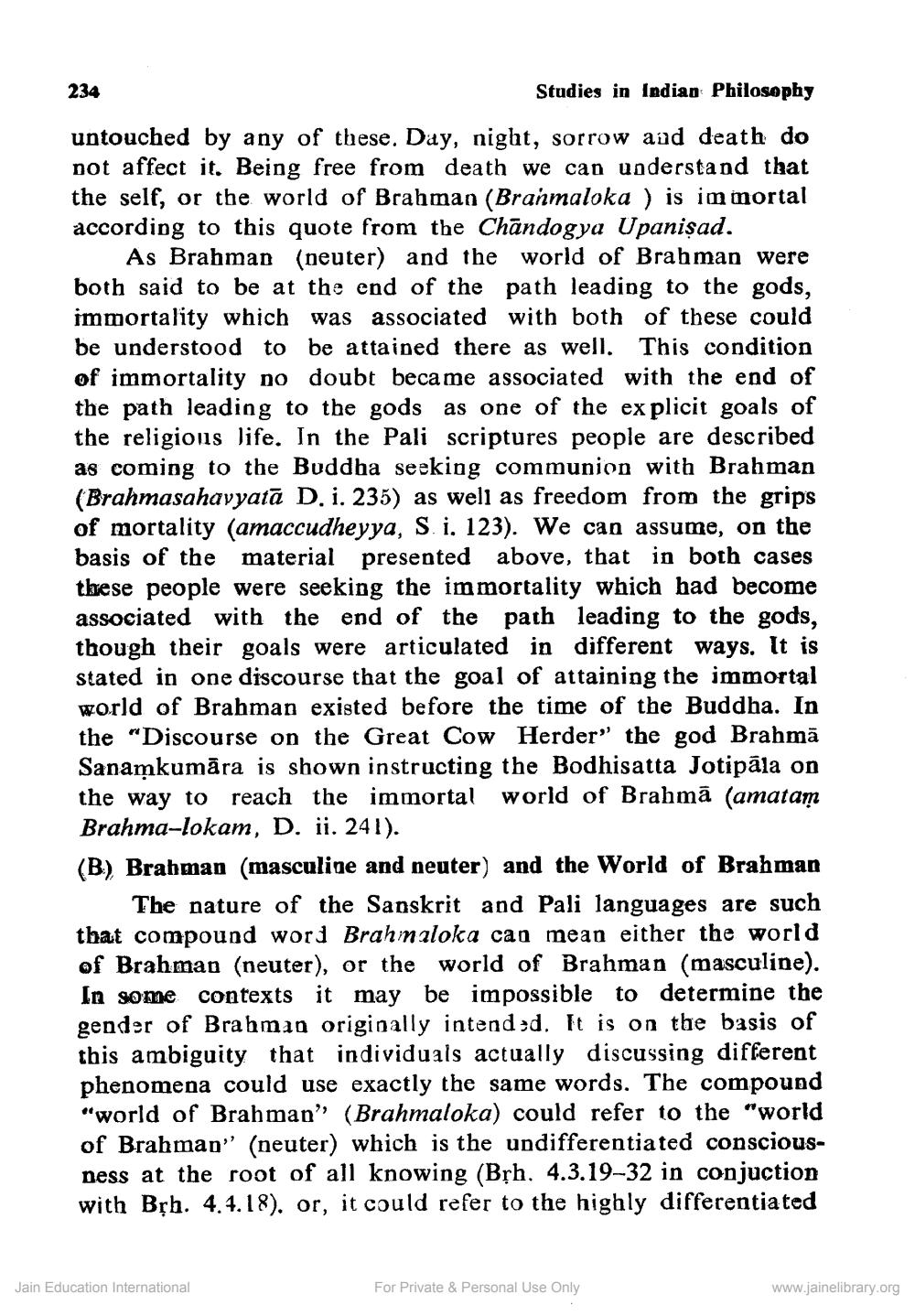________________
234
Studies in Indian Philosophy
untouched by any of these. Day, night, sorrow aud death do not affect it. Being free from death we can understand that the self, or the world of Brahman (Branmaloka ) is immortal according to this quote from the Chāndogya Upanisad.
As Brahman (neuter) and the world of Brahman were both said to be at the end of the path leading to the gods, immortality which was associated with both of these could be understood to be attained there as well. This condition of immortality no doubt became associated with the end of the path leading to the gods as one of the explicit goals of the religionis life. In the Pali scriptures people are described
s coming to the Buddha seeking communion with Brahman (Brahmasahavyatā D. i. 235) as weli as freedom from the grips of mortality (amaccudheyya, Si. 123). We can assume, on the basis of the material presented above, that in both cases these people were seeking the immortality which had become associated with the end of the path leading to the gods, though their goals were articulated in different ways. It is stated in one discourse that the goal of attaining the immortal world of Brahman existed before the time of the Buddha. In the "Discourse on the Great Cow Herder” the god Brahmä Sanamkumāra is shown instructing the Bodhisatta Jotipāla on the way to reach the immortal world of Brahmā (amatam Brahma-lokam, D. ii. 241). (B) Brahman (masculine and neuter) and the World of Brahman
The nature of the Sanskrit and Pali languages are such that compound word Brahin aloka can mean either the world of Brahman (neuter), or the world of Brahman (masculine). In some contexts it may be impossible to determine the gender of Brahman originally intended. It is on the basis of this ambiguity that individuals actually discussing different phenomena could use exactly the same words. The compound "world of Brahman” (Brahmaloka) could refer to the "world of Brahman” (neuter) which is the undifferentiated consciousness at the root of all knowing (Bịh. 4.3.19-32 in conjuction with Bịh. 4.4.18). or, it could refer to the highly differentiated
Jain Education International
For Private & Personal Use Only
www.jainelibrary.org




